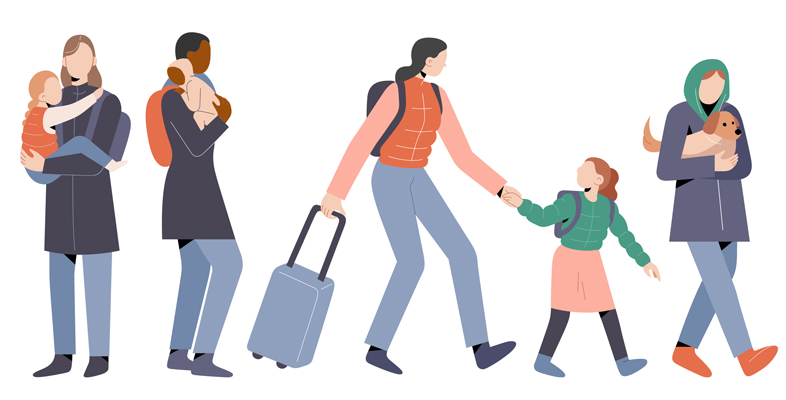9.1 Seeking asylum
In the final activity, Syeda Akbar – who herself sought asylum – speaks about her experience to help train practitioners and improve practice with asylum seekers.
Activity 7 Seeking asylum – a case study
In the following interview, Syeda Akbar, a young woman from Pakistan who sought asylum in England with her two children, speaks of the many issues she faced during the asylum process, the help she received from Southall Black Sisters (SBS) and her experience of other services. As you listen to Syeda speaking about her different experiences, you might wish to stop and come back to particular issues.
Transcript: Audio 17 Syeda Akbar introduces herself and the issues that led to her seeking asylum
Transcript: Audio 18 Syeda Akbar talks about what she did when her visa ran out
Transcript: Audio 19 Syeda Akbar talks about her first contact with SBS – the voluntary organisation for women
Transcript: Audio 20 Syeda Akbar talks about turning up at social services to ask for support after being evicted
Transcript: Audio 21 Syeda Akbar talks about the way she and her children were treated by the local authority while their case was pending
Transcript: Audio 22 Syeda Akbar talks about her NASS (now Home Office asylum support) accommodation and being dispersed to Coventry
Transcript: Audio 23 Syeda Akbar talks about her and her children getting leave to remain as refugees and leaving the NASS (now Home Office asylum support) system
Transcript: Audio 24 Syeda Akbar talks about how she and her children have settled since being granted leave to remain
Make notes to answer the following questions.
1. What barriers did Syeda face during the asylum process?
2. What support did she find useful?
Discussion
The advocacy and practical support that an organisation like SBS was able to provide at a point where Syeda did not know where to turn was particularly valuable.
As Syeda’s story shows, although there are common themes in the experience of seeking asylum which we can learn from, every experience is also different. It is therefore important to treat migrants, asylum seekers and refugees as individuals in their own right with their own stories to tell and their own sense of agency. Being spoken to in a humane way, being treated with dignity and being offered social and practical support can make a huge difference to someone’s life, especially at a time when they may be feeling lonely. Syeda asks whether some of her poor treatment was as a result of the law or of attitudes. What do you think? As you have explored in this course, the law can be constricting in relation to social work practice with asylum seekers and immigrants, but – as you have seen – there are organisations that can offer support and knowledge about the law. It is also important to recognise the resilience that people like Syeda and her children show in adapting to their new circumstances.
